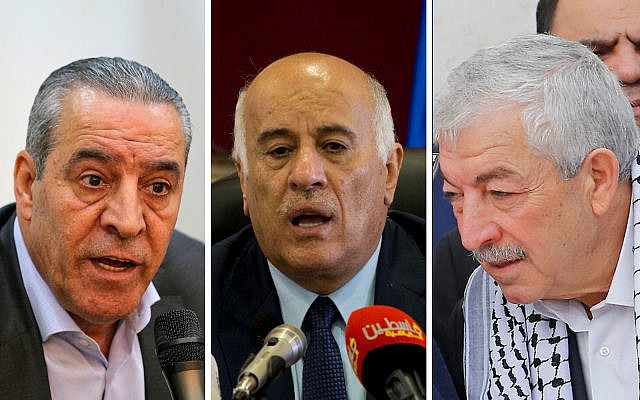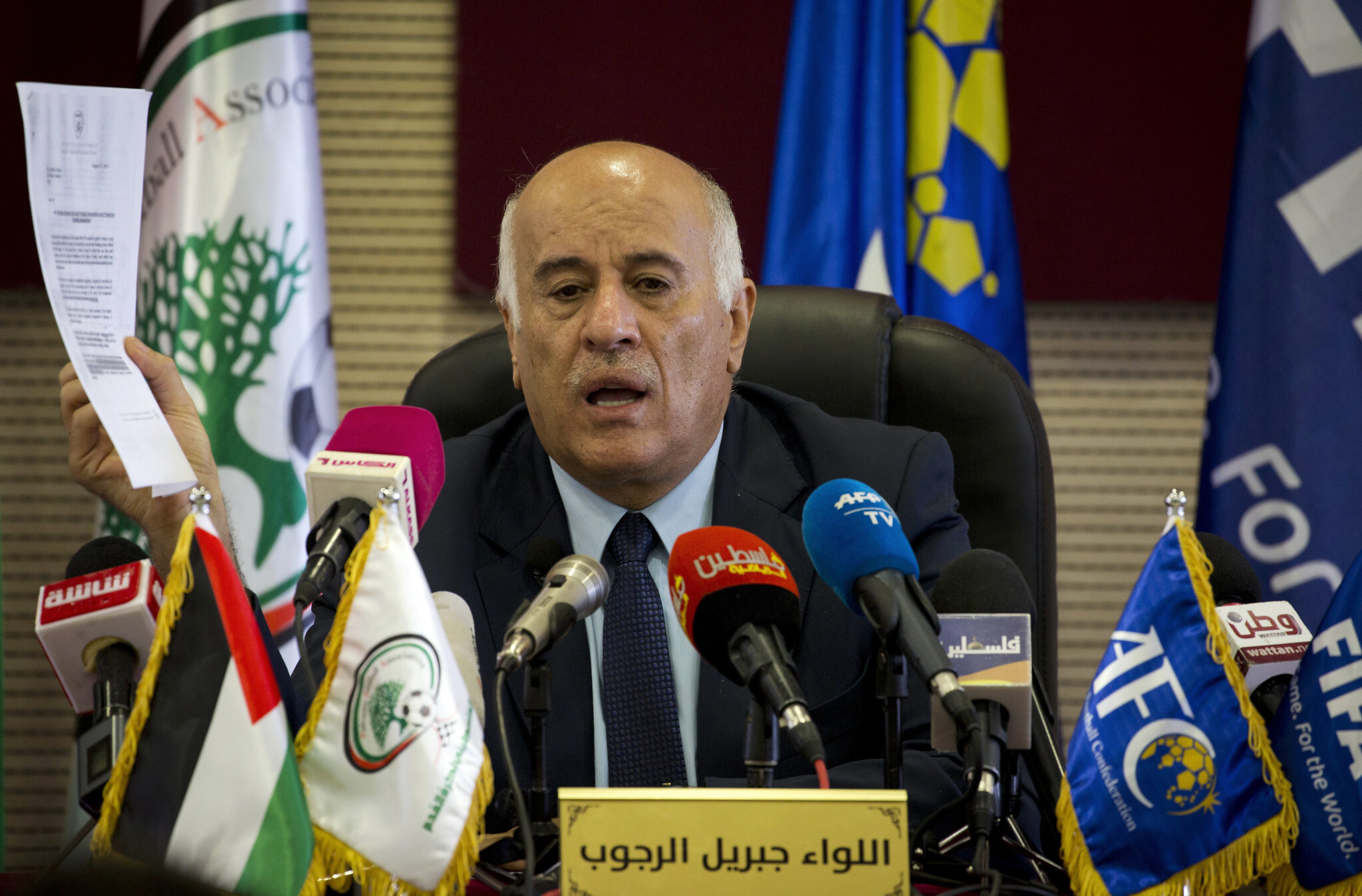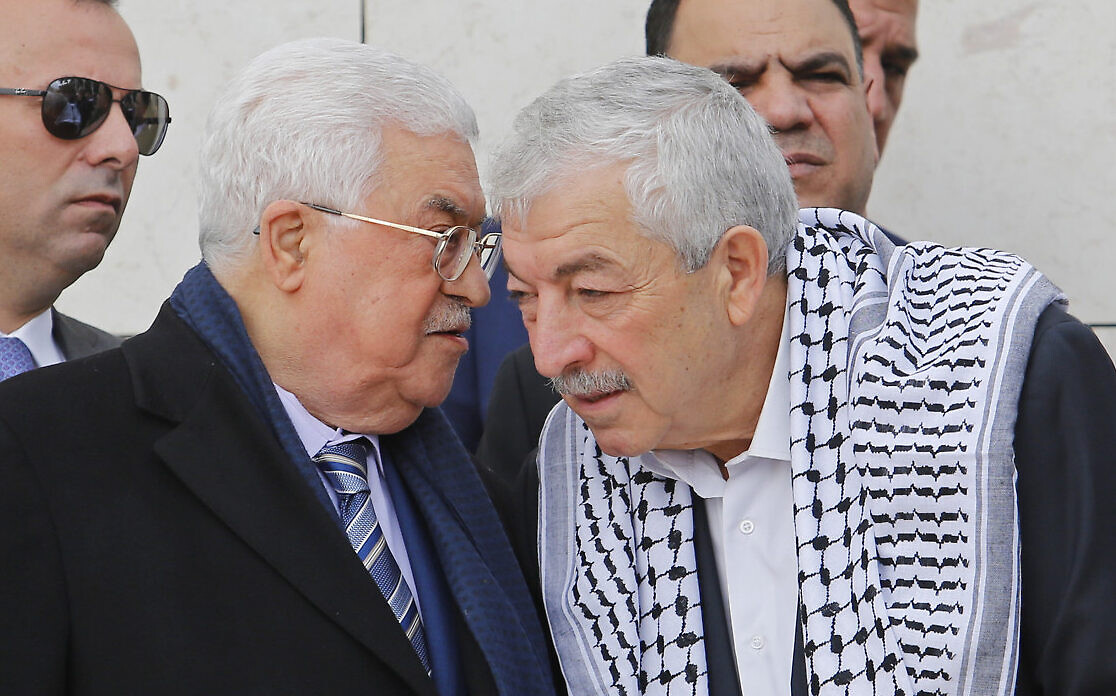
Palestinian President Mahmoud Abbas was admitted to a Ramallah hospital twice last week, making the ongoing question of succession that much more urgent. Regardless of whatever specific medical issues the PA leader may have (these are known only to his close circles and his physicians), health concerns are not unexpected in an 87-year-old man. Abbas is famously resilient and I’m told he was attending business meetings toward the end of the week. His health is a critical matter to the policies and politics facing Palestinians, Israelis, the United States, and many other interested parties.
Abbas’s 17-year tenure has been full of ups and downs but his commitment to the peaceful resolution of the struggle with Israel has remained ironclad. Many Palestinians, especially Hamas, have taken him to task for not pursuing the doctrine laid out by the iconic Palestinian leader Yasser Arafat of “bearing an olive branch in one hand, and the freedom fighter’s gun in the other.” It was a policy popular among Palestinians but left Israel continually questioning Arafat’s commitment to settling the conflict through peaceful means.
No elections
The issue of Abbas’ health resurfaced following US President Joe Biden’s visit to Israel and the West Bank and then to Saudi Arabia. Preparations for the meetings with Biden’s advance team were rigorous. Following the Abbas-Biden summit in Bethlehem Abbas undertook a whirlwind trip to multiple European countries without the necessary rest required of a man his age.
Palestinians across the political spectrum saw the Biden visit as a grave disappointment. It only confirmed a popular view that US policy is permanently tipped toward Israel and exacerbated the schism between hardliners and those seeking to engage in a diplomatic process.
Against this backdrop, the contenders to succeed Abbas face a daunting division between the West Bank and Gaza. It is a foregone conclusion, in my view, that no Palestinian presidential and parliamentary elections will be held in the West Bank and Gaza for fear that Hamas might win. Hamas’s legislative win in 2006 almost caused the collapse of the Palestinian Authority. Replacing Abbas, when the time comes, will therefore be conducted as a procedural process within the PLO’s Central Council and will not be guided by public opinion.
The choice of chairman of the PLO and, in turn, the president of the PA will fall upon the shoulders of the PLO’s Central Council. Given that Fatah, along with its independent allies, forms a majority in the PLO’s Central Council and its Executive Committee, the new head of Fatah will presumably become their nominee for the PLO’s chairmanship. The chairman of the PLO would then become the president of the PA as well.
The three contenders
Three figures currently stand out as the likely candidates to inherit the mantle of PLO and PNA leadership. The first and, lately, most visible candidate is Hussein Al-Sheikh, who made a meteoric rise through the ranks of the PLO. In February of 2022, he was appointed to the executive committee of the PLO, its highest decision-making body. Shortly thereafter, Al-Sheikh was appointed as the secretary-general of the executive committee of the PLO, a post that was held by the late Saeb Erekat. Many viewed these appointments as favoring Al-Sheikh over other contenders to assume the leadership of the PA and the PLO.
Currently, Al-Sheikh, who is 61, holds the position of the Head of the General Authority of Civil Affairs, as well as the Head of the Coordination and Cooperation Committee (CAC) with Israel. In these capacities, Al-Sheikh had to deal closely with the Israelis. Some Palestinians view his ties with Israel as too close for comfort. A major factor that could help Al-Sheikh’s ascent to the highest echelons of power within the PLO is the support he enjoys from Majed Faraj, the head of the Palestinian security forces. Nevertheless, and while in Ramallah, I have heard murmurs that some influential people would object (“over their dead bodies”) to Al-Sheikh’s ascension to the presidency.
The second contender for the chairmanship of the PLO and the presidency of the PA is Major General Jibril Rajoub, the secretary general of Fatah’s Central Committee. Rajoub, 69, is a former chief of Preventive Security in the West Bank and is regarded as actively vying to succeed Abbas.

Rajoub, who reportedly maintains power bases in the areas of Hebron and Ramallah, is known for his blunt talk that sometimes gets him into political hot water with the Palestinians, Israelis, and others (he clashed with former PLO Chairman Yasser Arafat who, at the time, stripped him of his post as head of Preventive Security).
Rajoub, I’ve been told, still maintains allegiance among some elements of the Palestinian security forces. Although he is well known to Israel and speaks fluent Hebrew, compliments of the time he served in Israeli prison, he can be mercurial in his mood and statements. One possible obstacle in Rajoub’s path is the fact that he is not a member of the executive committee of the PLO. That, however, is not a legal obstacle to his ascension to the presidency if he is first elected as the head of Fatah.
If things heat up badly between Al-Sheikh and Rajoub, the compromise candidate could be Mahmoud Aloul. Aloul was elected in 2017 as deputy chairman of Abbas’s Fatah party, which dominates the PA and its security forces.

In 2018, Abbas reportedly told Fatah Revolutionary Council members that Aloul was his preferred candidate to succeed him as chairman of Fatah. The Council is the second key decision-making body after the Fatah Central Committee. Aloul, 71, would be the oldest of the three candidates. In the 1970s, he was involved in military attacks against Israel. Nevertheless, if elected, Aloul, who belongs to the old guard of the Palestinian leadership, is expected to pursue the same policies as Abbas. Aloul shares the Abbas strategy according to which the Palestinians should stick to “popular resistance,” and not “armed struggle,” against Israel.
Style, not substance
Many have predicted the demise of Abbas due to his ill health. The elderly president, however, has cheated death many a time. After meeting with US President Joe Biden, Abbas’ tour of several European countries would have exhausted officials who are much younger. And yet succession is inevitable.
Among the three likely contenders, there are few fundamental ideological differences and their core policies towards Israel, the US, and the peace process should not be expected to deviate much from those of Abbas. Nevertheless, their style of leadership will reflect their personalities, with Al-Sheikh being the most diplomatic, Rajoub being the bluntest, and Aloul being a mirror image of Abbas.
The selection of a new president is projected to be tense and potentially involve clashes at times, especially between supporters of Hussein Al-Sheikh and Jibril Rajoub. Nevertheless, the internal elections will ultimately be held largely in peace. The style and power base of each candidate – and not any significant differences in policy or politics – will ultimately determine who succeeds Abbas.
